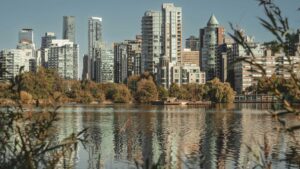Why Coquitlam Is One of the Best Cities in Metro Vancouver for Iranian Families and Newcomers
Why Coquitlam Is One of the Best Cities in Metro Vancouver for Iranian Families and Newcomers
A Fresh Start in Coquitlam, British Columbia
Are you thinking about starting a new chapter in beautiful British Columbia, Canada? For many newcomers — especially Iranian families — Coquitlam has quickly become one of the most desirable places to call home. Located in the heart of Metro Vancouver, this growing city offers the perfect balance of urban convenience, affordability, and natural beauty.
Whether you are moving from Iran, China, India, Russia, Turkey, or anywhere else, Coquitlam’s welcoming, multicultural atmosphere makes it easy to settle in and thrive. It’s not just a city — it’s a community built for families, professionals, and newcomers ready to embrace Canadian life.
The Lifestyle Advantage: Parks, Trails, and Nature Everywhere
Coquitlam is surrounded by natural beauty. Imagine starting your day with a stroll around Lafarge Lake, hiking through Mundy Park’s lush forests, or enjoying the sweeping views from Burke Mountain. Families love that outdoor activities are just steps away from home, making it easy to live a healthy, active, and balanced lifestyle.
Unlike the hustle of downtown Vancouver, Coquitlam offers more space, more greenery, and a slower pace of life — all while keeping you connected to the city when you need it.
Great Transit and Central Location
Thanks to the Evergreen SkyTrain Line, commuting couldn’t be easier. In less than 40 minutes, you can be in downtown Vancouver, making Coquitlam a smart choice for professionals who work in the city but want to live in a family-friendly community.
The transit system also makes it convenient for students attending nearby colleges and universities, and for families accessing shopping, entertainment, and healthcare across Metro Vancouver.
A Multicultural and Family-Friendly City
Coquitlam is one of Metro Vancouver’s most diverse and inclusive communities. Families from all cultural backgrounds feel welcome here, and the city actively promotes community connection through cultural events, festivals, and public programs. Safety is another highlight — Coquitlam consistently ranks as one of the safest cities in the region, giving parents peace of mind as they raise their children.
A Strong and Growing Iranian Community
One of the reasons Iranian families love Coquitlam is the growing Persian-speaking community. You’ll find Iranian grocery stores stocked with familiar ingredients, Persian restaurants serving traditional dishes, and cultural events that bring the community together.
Farsi-speaking doctors, lawyers, and other professionals are also available, making it easier for newcomers to navigate daily life and feel supported. This blend of cultural familiarity and Canadian opportunity makes Coquitlam especially attractive for new immigrants.
Schools and Education Opportunities
Families moving to Coquitlam quickly discover that education is a top priority. The city offers high-ranking public and private schools, many of which are known for academic excellence and extracurricular programs.
For newcomers, there are also ESL (English as a Second Language) programs, community centers, and after-school activities designed to help children adapt quickly. Parents appreciate that their children can grow up with strong academics, diverse friendships, and a safe environment.
More Affordable Than Vancouver
Housing prices in Vancouver are among the highest in Canada, but Coquitlam offers a more affordable alternative without sacrificing lifestyle. Families can choose from modern condos near SkyTrain stations, spacious townhomes, or detached family houses close to schools and parks.
While Coquitlam’s housing market is competitive, it remains more accessible compared to Vancouver’s, making it an attractive destination for first-time homebuyers and investors.
Nature and Outdoor Living
Few cities in Metro Vancouver match Coquitlam’s access to nature. From kayaking on local lakes to hiking the trails of Coquitlam Crunch or exploring Pinecone Burke Provincial Park, the outdoor options are endless. For families who value fresh air, exercise, and green space, Coquitlam delivers a lifestyle that is hard to beat.
Why Choose Coquitlam? A Quick Recap
🚇 Easy Transit & Location – SkyTrain access to Vancouver and beyond
🌎 Multicultural & Safe – Diverse, welcoming, family-oriented community
🇮🇷 Strong Iranian Community – Farsi-speaking professionals, grocery stores, restaurants, and events
🎓 Excellent Schools – Public, private, and ESL programs for children and adults
🏡 More Affordable Homes – Condos, townhomes, and houses at better value than Vancouver
🌲 Nature Everywhere – Lakes, mountains, parks, and trails just minutes away
Ready to Call Coquitlam Home?
If you’re planning to move to Metro Vancouver, Coquitlam offers everything newcomers are looking for: affordability, safety, education, and a thriving multicultural environment.
📞 Contact me today at 604-217-4854 to learn more about real estate opportunities, schools, and community resources. I’d be happy to help you start your new life in Coquitlam — a city where families grow, cultures connect, and newcomers feel right at home.
